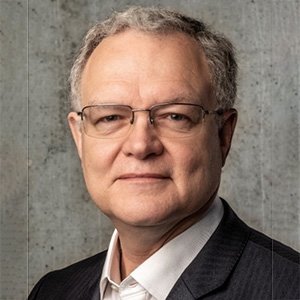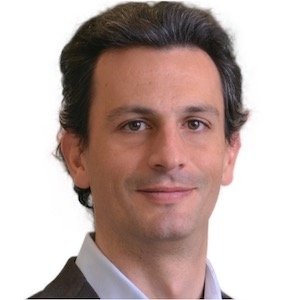IC Forum 1: The impact of Automatic Control Research on Industrial Innovation
Date: 13:30-15:30, Tuesday, 11th July 2023 (TuB)
Room: Main Hall
Related Committee: IFAC Industry Committee
Organizer:
IFAC Industry Committee, Dr. Alex van Delft
Session Chairs:
Chair: Dr. Kevin Brooks (APC Smart/University of Witwatersrand, South Africa)
Co-Chair: Benjamin Sawicki (ETH Technology Transfer, Switzerland)
Speakers/Panelists:
1. Kevin Brooks (APC Smart/University of Witwatersrand, South Africa)
2. Stefano Di Cairano (Mitsubishi Electric Research Laboratory, USA)
3. Alisa Rupenyan (ETH and Inspire AG, Switzerland)
4. Benjamin Sawicki (ETH Technology Transfer, Switzerland)
5. Philippe Goupil (Airbus France)
6. Iven Mareels (Federation University, Australia)
7. Akira Ohata (Formerly Toyota and Technova Inc, Japan)
Abstract
Within the context of the IFAC Industry Committee mission, in 2021 a paper was published in “Control Engineering Practice”: “The impact of control research on industrial innovation: What would it take to make it happen?”, co-authored by Prof. Dr. Silvia Mastellone and Dr. Alex van Delft. In this paper a framework is proposed to close the gap between fundamental control research and practice towards catalyzing technology innovation. Based on this framework, the authors have prepared an edited volume, to be published in the book series on “Control Systems: Theory and Applications” of IEEE Press, an imprint of John Wiley & Sons. The book consists of separate chapters on process industry, robotics and manufacturing automation, data industry, energy and power conversion, automotive and building automation, and focuses on the need to improve Technology Transfer from Automatic Control Research to Industrial innovation in order to enable a sustainable future. Two presentations in this forum session are from lead authors from two different industry sectors highlighted in the edited volume. The session will be concluded with an interactive panel session.
Session Program
1. General Introduction of this forum session (15’)
Speaker: Dr. Kevin Brooks (APC Smart/University of Witwatersrand, South Africa).
2. Case Study 1: Technology transfer in the Automotive Industry (20’, incl Q&A)
Speaker: Dr. Stefano Di Cairano (Mitsubishi Electric Research Laboratory, USA):
Abstract: The automotive domain is expected to evolve quickly over the next 20 years, with vehicle electrification, autonomy, connectivity, and integration with other transportation systems. But it is a long way from completing research on a technology, to making a product out of that technology. Among the many challenges that may stop a technology to transfer to real world products are stringent regulations, cost factors, technology learning barriers, limitations imposed by mass-production. I am going to share some thoughts on these limitations and how they can be possibly handled, based on my experience in developing predictive control technologies for automotive applications, that recently resulted in new products being successfully marketed.
3. Case Study 2: Robotics and Manufacturing Automation (20’, incl Q&A)
Speaker: Dr. Alisa Rupenyan, (ETH and Inspire AG, Switzerland).
Abstract: In-depth treatment of this industry sector and its characteristic control
problems, with some illustrative examples. Purpose is to give the audience a feeling on what it really means to identify control problems for this industry sector, and how to generate interest in industry on innovative ideas.
4. Panel Discussion (65’)
Panel Lead: Benjamin Sawicki (ETH Technology Transfer, Switzerland)
Abstract: General discussion on the theme of the Introduction and the two case studies. The proposed panel is centered around the title of the paper: “What would it take to make it happen?”. Through the diversity of the panelists, the audience can expect insightful discussions about:
- why all stakeholders benefit from closing the gap between fundamental control research and practice towards catalyzing technology innovation
- experiences with the proposed framework from industry and academia beyond the two case studies
- different roles of funding schemes and best practices of innovation agencies to foster new collaborations in the industry sectors and countries
- how to measure progress and define success in technology transfer campaigns (survey of the audience, if and what standards like ISO 56000 are in place and used)
- the trend towards open science (academia), open innovation (industry), and the risk that intellectual property schemes centralize key innovation among a small group of leaders (involving Menti-Meter online voting of audience)
- concluding with a look beyond the scope of the control community, what to avoid, what to wish for and what are the learnings.
Biography of Speaker
Kevin Brooks has been working in advanced processes for the last 25 years, mainly in the oil refining, mining, minerals and metals sectors. He has worked with Honeywell and Aspentech, the leading vendors in the model predictive control (MPC) area. In 2021 he started APC Smart, a company which aims to provide mentoring, training, studies and project implementation in MPC. Kevin is an honorary adjunct Professor at the University of the Witwatersrand in his hometown of Johannesburg, South Africa. He is co-leader of the data analytics, numerics and control engineering (DANCE) group and currently supervises ten
graduate students. Kevin has been nominated to take over as IFAC Industry Committee Chair for the next triennium.
Benjamin Sawicki is coordinating Knowledge and Technology Transfer for the NCCR Automation (funded by the Swiss National Science Foundation). He uses his 15 years of growing high-tech start-ups when coaching young entrepreneurs. He received his degree in electric engineering at the University of applied sciences Bern and a master in management of technology from EPFL.
Philippe Goupil received the PhD degree in signal processing from the National Polytechnic Institute, Toulouse, France. He works at the AIRBUS commercial aircraft design office in Toulouse as a Technical Fellow in fault/anomaly detection for avionic systems. He is also in charge of advanced fault detection and diagnosis R&T activities dedicated to real-time industrial applications. He is the author of 22 industrial international patents and of about 90 conference or journal articles. He has been the industrial supervisor of several PhD students.
His current research interests include Data Analytics and Artificial Intelligence techniques for enhanced Fault Detection and for V&V processes.
Alisa Rupenyan is a Senior scientist at the Automatic Control Laboratory at ETH Zurich, and leads a group for applied control and machine learning at Inspire – a technology transfer institute in Zurich, Switzerland. She has extensive experience in both industry and academia. Her interest in academia is the automation of industrial manufacturing processes and motion systems, using methods involving approaches from control theory and machine learning, with the goal of improving sustainability of such systems.
Akira Ohata worked at Toyota for more than 40 years and retired from Toyota in 2015. His major working fields were exhaust gas emissions control, intake and exhaust system optimization based on the inverse problem on frequency domain representation, education of control theory at Toyota, vehicle control, HEV control and state of charge (SOC) estimation applied to the first Prius, and promotion of Model-Based Development (MBD) including plant modeling and validation & verification. He had a strong connection with Japanese mathematics society and had a great interest in promotion of mathematics in the automotive industry. He still has an interest in control design for industry and completely mixed multi-physics modeling and the integration of black and white box models.
 Iven Mareels is the Executive Dean, Institute for Innovation, Science and Sustainability, Federation University Australia, since October 2022. He is also a Director of the Australian Academy of Technology and Engineering, and a non-executive Director of Rubicon Water.
Iven Mareels is the Executive Dean, Institute for Innovation, Science and Sustainability, Federation University Australia, since October 2022. He is also a Director of the Australian Academy of Technology and Engineering, and a non-executive Director of Rubicon Water.
Previously, he was a partner in IBM Consulting and Director of the Centre for Applied Research, IBM Australia (April 2021-Aug 2022); Director of IBM Research in Australia (Feb 2018- Mar 2021); Dean of Engineering at the University of Melbourne (2007-2018).
Iven received the PhD in Systems Engineering from the Australian National University (1987), and the Master of Engineering (Electromechanical) from Gent University (1982). He was made a Commander in the Order of the Crown of Belgium, and received the Centenary Medal of Australia for contributions to engineering education and research.
He is a Fellow of The Academy of Technological Sciences and Engineering Australia; The Institute of Electrical and Electronics Engineers (USA), the International Federation of Automatic Control (Austria) and Engineers Australia and he is a Foreign Member of the Royal Flemish Academy of Belgium for Science and the Arts.
 Stefano Di Cairano is a Deputy Director, and Distinguished Research Scientist at the Mitsubishi Electric Research Laboratories. His research focuses on control strategies for complex mechatronic systems, in automotive, factory automation, transportation systems, and aerospace. He has authored more than 200 peer-reviewed articles in journals and conference proceedings, is an inventor in more than 70 patents, and has developed several training courses for control practitioners in industry used within his organizations. He won several awards within Mitsubishi Electric, especially for his research in ADAS and MPC, some of which resulted in mass-production of novel products. He is an executive member of the IFAC Industry Committee, and the vice-chair for industry of the IFAC TC on Optimal Control.
Stefano Di Cairano is a Deputy Director, and Distinguished Research Scientist at the Mitsubishi Electric Research Laboratories. His research focuses on control strategies for complex mechatronic systems, in automotive, factory automation, transportation systems, and aerospace. He has authored more than 200 peer-reviewed articles in journals and conference proceedings, is an inventor in more than 70 patents, and has developed several training courses for control practitioners in industry used within his organizations. He won several awards within Mitsubishi Electric, especially for his research in ADAS and MPC, some of which resulted in mass-production of novel products. He is an executive member of the IFAC Industry Committee, and the vice-chair for industry of the IFAC TC on Optimal Control.

